Answer: no, not yet.
Equity Policies are a recommendation by Vermont School Boards Association (VSBA), Vermont Superintendents Association (VSA), and Vermont Principals Association (VPA). The current VSBA/VSA/VPA Equity Policy is 2 pages in length and can be found on the VSBA website VSBA Model Educational Equity Policy. In addition, VSBA/VSA/VPA have signed a joint statement that attempts to identify what existing law allows these authorities to teach about diversity, equity, and inclusion (DEI).
What is Equity?
VSBA/VSA/VPA have adopted a shared definition of equity:
Each student receives the resources and educational opportunities they need to learn and thrive.
• Equity means that a student’s success is not predicted nor predetermined by characteristics such as race, ethnicity, religion, family economics, class, geography, ability, language, gender, sexual orientation, gender identity or initial proficiencies.
• Equity means that every school provides and every student has access to high quality culturally responsive curriculum, programs, teachers and administrators, extracurricular activities and support services to meet the needs of each and every student.
• Equity goes beyond formal equality where all students are treated the same. Achieving equity may require an unequal distribution of resources and services.
• Equity involves acknowledging and disrupting inequitable practices, acknowledging biases, employing practices that reflect the reality that all students will learn, and creating inclusive multicultural school environments for adults and children.
Educational Equity | VSBA website
Where do Vermont policymakers draw their guidance on teaching about DEI?
Vermont’s Education Quality Standards (or Vermont State Law) require(s) that each supervisory union deliver a curriculum that aligns with standards approved by the State Board of Education. Specifically, Education Quality Standard 2120.5 states that “each school shall enable students to engage annually in rigorous, relevant and comprehensive learning opportunities that allows them to demonstrate global citizenship (including the concepts of civics, economics, geography, world language, cultural studies and history)”. Social Studies and World Languages are content areas within Global Citizenship.”
According to the Vermont Agency of Education website, “. . . in 2017, the Vermont State Board of Education adopted the College, Career and Civic Life, C3 Framework for Social Studies State Standards (C3) to guide the teaching of civics, economics, geography, and history within Vermont. The Agency of Education has provided social studies proficiency-based graduation requirements, which were developed from the C3 standards and developed by Vermont educators, to serve as a sample. These graduation proficiencies are examples of a rigorous proficiency-based graduation framework that meets Education Quality Standards.“
Statement on Critical Race Theory; VSBA, VSA, VPA; September 20, 2021
Part 1 – The Law
Drawing from Vermont State Law to establish Vermont State Board of Education (VSBE), its authority, and its existing policies.
(9) Implement and continually update standards for student performance in appropriate content areas and at appropriate intervals in the continuum from kindergarten to grade 12 and methods of assessment to determine attainment of the standards for student performance. The standards shall be rigorous, challenging, and designed to prepare students to participate in and contribute to the democratic process and to compete in the global marketplace. The standards shall include a standard for reading level proficiency for students completing grade three.
16 V.S.A. § 164
In 1984, Vermont State Board of Education adopted the rule “Series 2000 – Education Quality Standards.” VSBA/VSA/VPA focus on two particular statements in the rule:
Each school shall enable students to engage annually in rigorous, relevant and comprehensive learning opportunities that allows them to demonstrate proficiency in
d. global citizenship (including the concepts of civics, economics, geography, world language, cultural studies and history);
…
g. transferable skills (including communication, collaboration, creativity, innovation, inquiry, problem solving and the use of technology).
Section 2120.5. Curriculum Content, VSBE Manual of Rules and Practices – Series 2000 – Education Quality Standards
17. “Transferable skills” refers to a broad set of knowledge, skills, work habits, and character traits that are believed to be critically important to success in today’s world, particularly in collegiate programs and modern careers.
Section 2114. Definitions, VSBE Manual of Rules and Practices – Series 2000 – Education Quality Standards
While it is no doubt this definition was written with good intention, to provide long-term flexibility in teaching and allow curriculum opportunity to evolve and modernize, this is partly the reason some policymakers believe they can focus on items beyond education. This is why we believe that policies should be focused, clear, and purposeful, leaving little room for interpretation, especially on a State or Local level. Otherwise definitions, like the one in question, can easily be manipulated.
Questions that arise from this definition:
- Should we be focusing on “knowledge, skills, work habits and character traits” for “today’s world” or for the future?
- Imagine a policy like this written in centuries ago, would there then be a requirement to teach children how to be successful under a system of slavery?
- “Believed to be critically important” can be interpreted differently be everyone. Would “demonstrably important” be more appropriate?
~ See For Yourself ~
By exploring the State of Vermont Agency of Education website its easy to identify the exact path that policymakers and bureaucrats are winding to relate adopted rules to DEI and policies antithetical to education (use the links to follow along):
- Global Citizenship is an area of study as established in Education Quality Standards, Section 2120.5 (Content Areas | State of Vermont Agency of Education)
- Social Studies (although its referred to as cultural studies) is a key concept of Global Citizenship (Global Citizenship | State of Vermont Agency of Education)
- Just one heading down you will see “Spotlight on Equity Resources” which is higher on the page then even the curriculum outline (Social Studies | State of Vermont Agency of Education)
- Pick the Social Studies: Spotlight on Equity Resources which is at the end of the “Spotlight on Equity Resources” section, and review this document for yourself [future page will discuss this topic]
Part 2 – State Approved Policy & Standards
In 2017, Vermont State Board of Education adopted the “College, Career & Civic Life – C3 Framework for Social Studies State Standards.” VSBA/VSA/VPA specifically identify 7 goals of the C3 Framework that they believe relate to equity:
• D2.Civ.5. Analyze the impact and the appropriate roles of personal interests and perspectives on the application of civic virtues, democratic principles, constitutional rights, and human rights.
• D2.Geo.2. Use maps, satellite images, photographs, and other representations to explain relationships between the locations of places and regions and their political, cultural, and economic dynamics.
• D2.Geo.5. Evaluate how political and economic decisions throughout time have influenced cultural and environmental characteristics of various places and regions.
• D2.Geo.8. Evaluate the impact of economic activities and political decisions on spatial patterns within and among urban, suburban, and rural regions.
• D2.His.5. Analyze how historical contexts shaped and continue to shape people’s perspectives.
• D2.His.7. Explain how the perspectives of people in the present shape interpretations of the past.
Statement on Critical Race Theory; VSBA, VSA, VPA; September 20, 2021
Noticeably missing from any of the above policy is any reference to equity. Neither the word equity, nor the current definition adopted by VSBA/VSA/VPA, are included in any of the above curriculum standards.
Another important note is that even if these items were in some way relatable to equity, they are proscribed to children in grades 9-12, not as a schoolwide policy. Conveniently the curriculum grade is omitted in these 7 examples on the VSBA/VSA/VPA joint statement, even though it included directly within the descriptions. You can see the tables for yourself below.
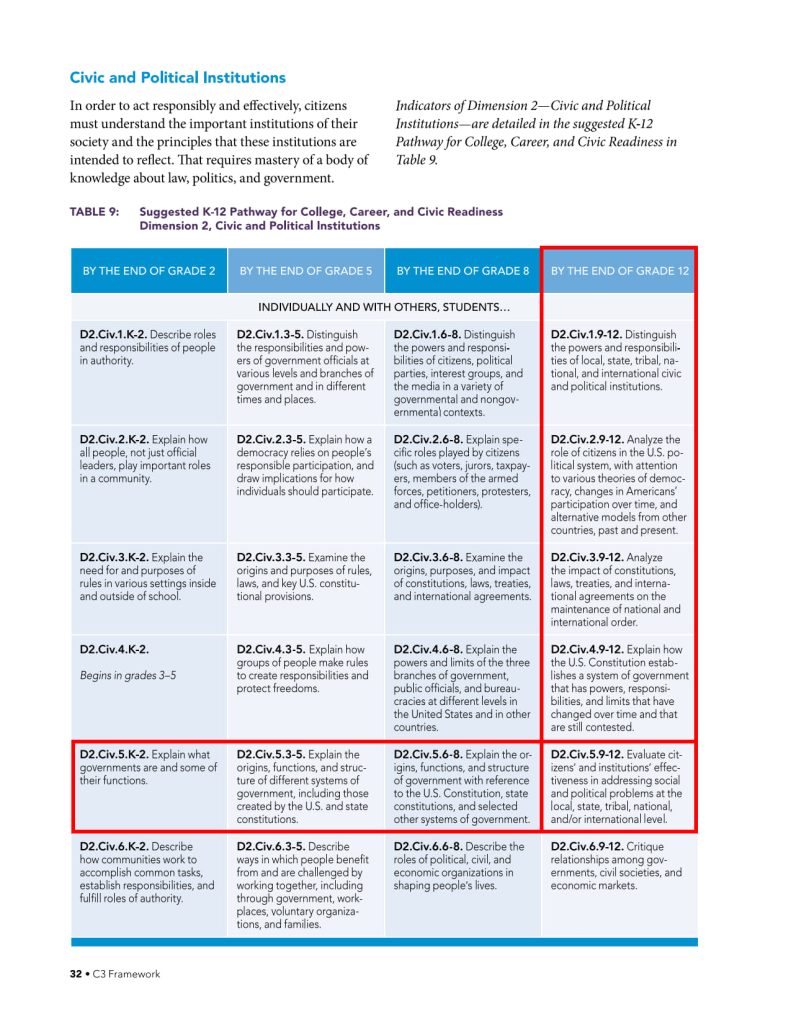
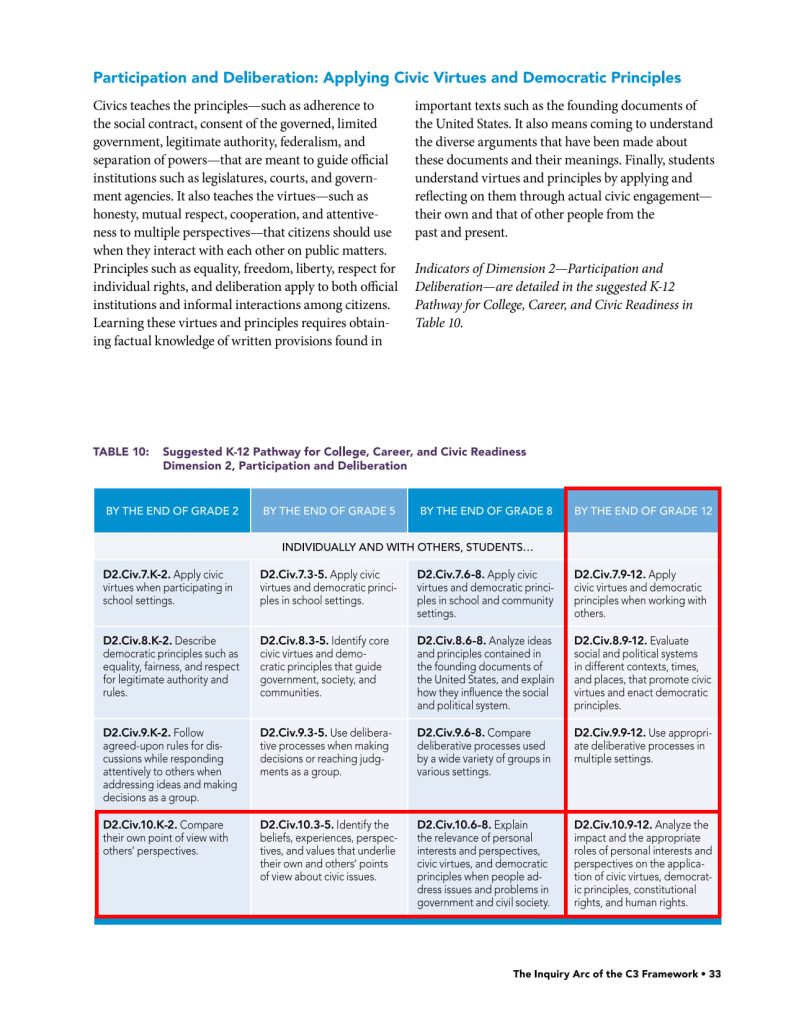
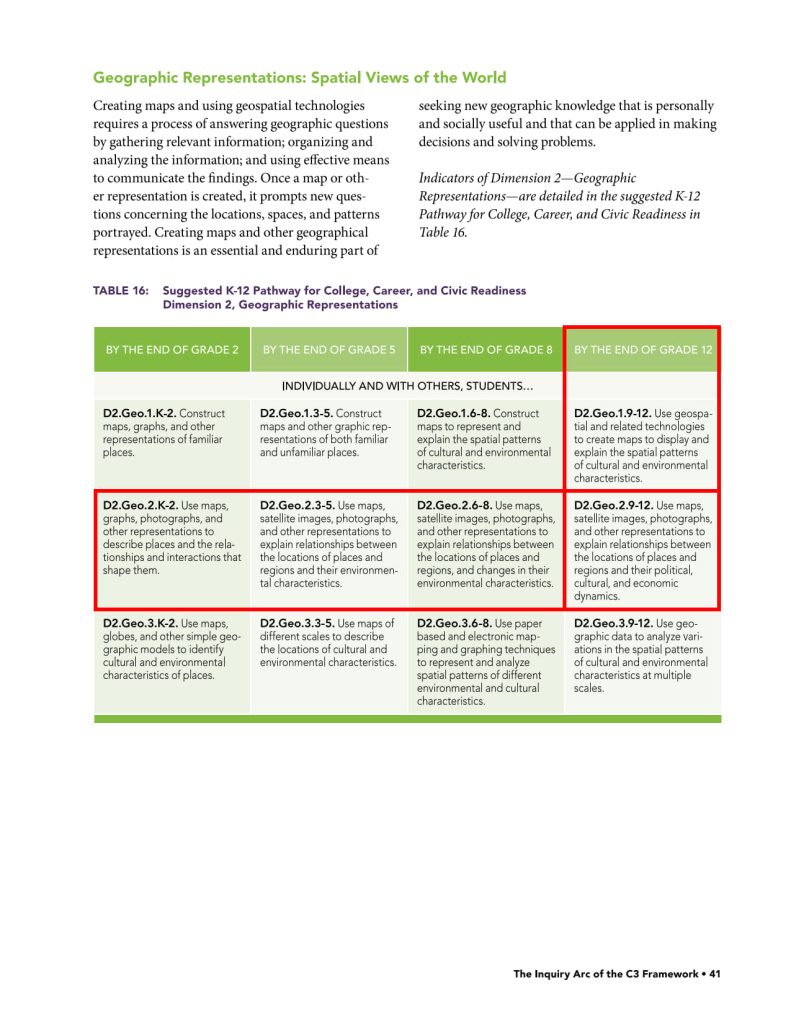
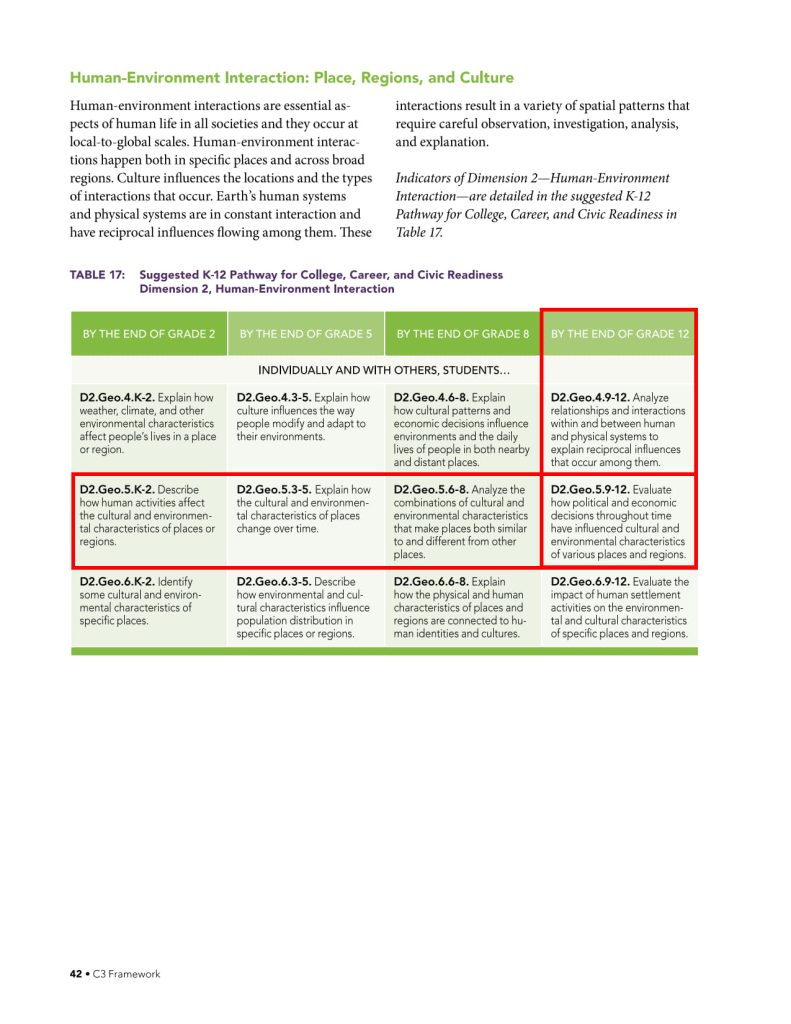
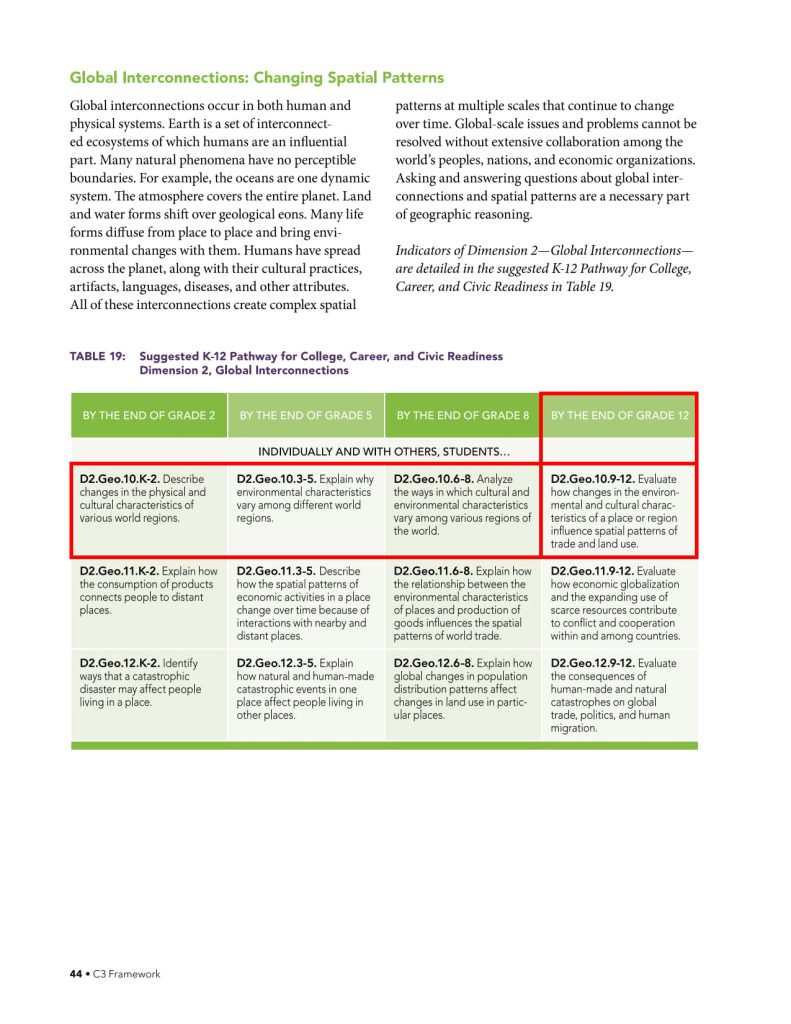
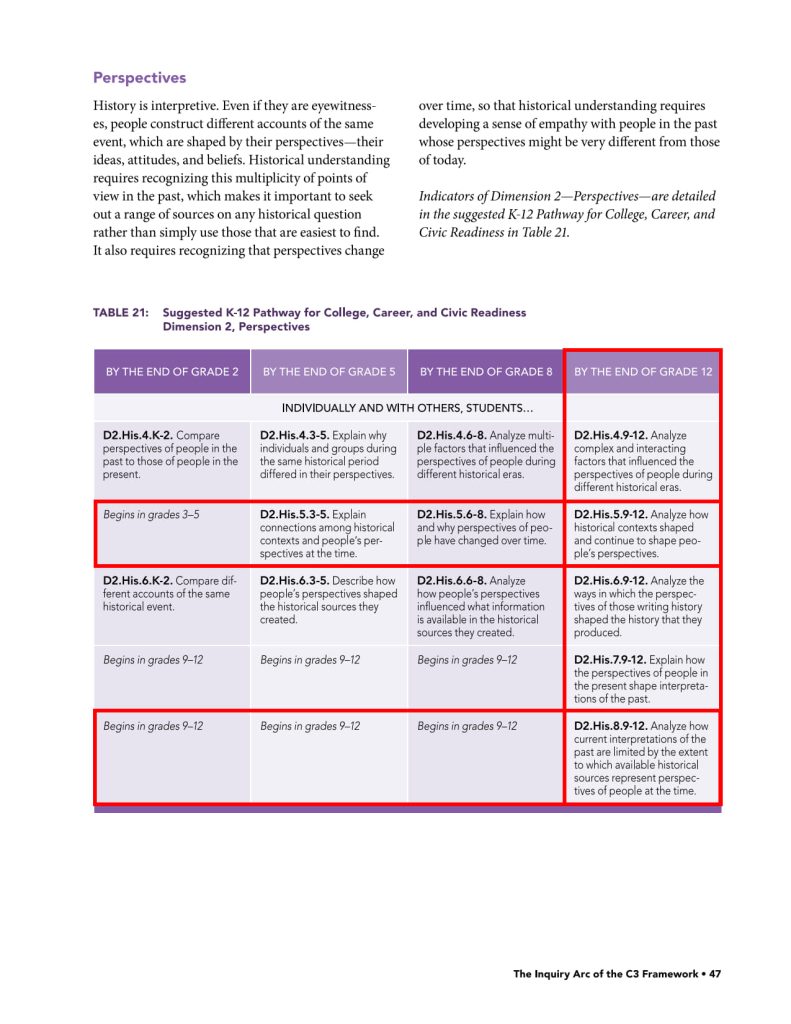
So are there Vermont laws or policies that require DEI?
While there are some existing state laws that make reference to equity, they are generally refer to financial distribution at the state level or adjustments of education services for students that need additional support based on learning abilities. Here are a few examples:
H.361 Act 46
This act is intended to move the State toward more sustainable models of education governance by July 1, 2019 that, among other things, provide substantial equity in quality and variety of educational opportunities and maximize operational efficiencies.
H.361 Act 46 Summary
Act 46 builds on Acts 153 and 156 and was seeking to merge a number of school districts with the intention of creating school districts with student populations between 2,000 and 4,000 pupils.
This legislation is designed to encourage and support local decisions and actions that: (1) provide substantial equity in quality and variety of educational opportunities statewide.
H.361 Act 46 As Enacted: Sec. 2. GOALS
H.897 Act 173
This act changes the State funding model for special education for all supervisory unions in fiscal year 2021, for school year 2020-2021, from a reimbursement model to a census-based model.
H.897 Act 173 Summary
Here are some excerpts from the bill:
(c) The Delivery of services Report made the following five recommendations on best practices for the delivery of special education services: (1) ensure core instruction meets most needs of most students; (2) provide additional instructional time outside core subjects to students who struggle, rather than providing interventions instead of core instructions;
H.897 Act 173 As Enacted: Sec. 1. FINDINGS
(a) By enacting this legislation, the General Assembly intends to enhance the effectiveness, availability, and equity of services provided to all students who require additional support in Vermont’s school districts.” State Legislature wishes to determine which supervisory unions have higher costs in supporting students with special needs but is relying on Agency of education to make recommendations for the State Legislature to review further.
H.897 Act 173 As Enacted: Sec. 2. GOALS
§ 2902. TIERED SYSTEM OF SUPPORTS AND EDUCATIONAL SUPPORT TEAM
(b) tiered system of supports shall:
(5) provide all students with a continuum of evidence-based positive behavioral practices that promote social and emotional learning, including trauma-sensitive programming, that are both school-wide and focused on specific students or groups of students;
H897 Act 173 As Enacted: Sec. 4. 16 V.S.A. AMENDMENT
In sum, Act 173 mentions equity in the sense that students should be supplied the tools necessary to allow them to achieve success, no matter their learning abilities, social skills, emotion/behavioral problems, etc. These services are to be provided via a tiered system and are not to withdraw resources from students learning under more standard methods. However, Act 173 is used as a Trojan Horse to amend V.S.A. Title 16 (Vermont’s laws on education) to assert the need for social and emotional learning (SEL), another guise for the institution of DEI policies.
H.3 Act 1 (Ethnic and Social Equity Standards Advisory Working Group)
This act creates the Ethnic and Social Equity Standards Advisory Working Group to review standards for student performance adopted by the State Board of Education.
H.3 Act 1 Summary
Act 1 went into effect on March 29, 2019. The Working Group has generated three reports to the General Assembly, with broad recommendations to existing the Vermont Educational Standards, School District & Supervisory Union Policies, State Board Rules (including updates to Series 2000 – Education Quality Standards), Education Statutes, and Educator Trainings/Professional Learning.
In April of 2014 the Working Group proposed changes to the Series 2000 – Education Quality Standards. The changes, not yet adopted, focus on equity and the indoctrination of children, while at the same time making no recommended changes to the curriculum standards which govern how our children are prepared for life after school. If this amendment is adopted by your state representatives it will provide provisions for equity at publicly funded schools. You can view the proposed changes here.
Conclusion
The equity policies that are being pushed at the Local School and Supervisory Union level are not required under state law, but they are being pushed by activists advising the General Assembly. This page is intended as a summary and only scratches the surface of DEI in our schools. Please take time to visit the additional links below to better understand each of the topics discussed above in more detail. [more to follow]
0 Comments